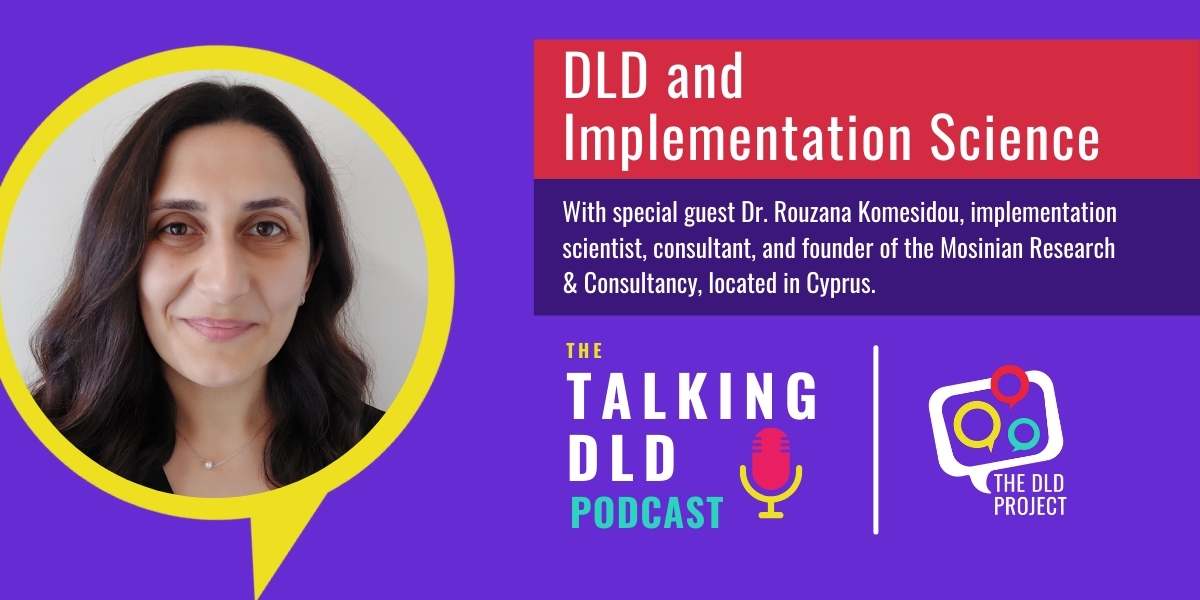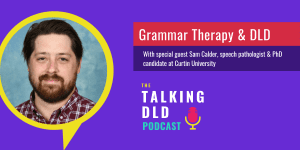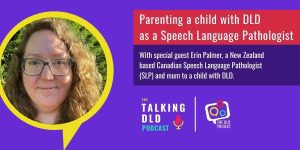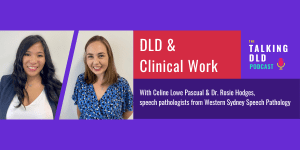This article was written for The DLD Project by Dr. Rouzana Komesidou, an implementation scientist, consultant, and the founder of Mosinian Research & Consultancy, located in Cyprus.
Did you know that it takes approximately 17 years for research to reach practice (Balas & Boren, 2000)? We call this the research-to-practice gap. The gap means that evidence-based practices do not get used as much as they should, and people with developmental language disorder (DLD) do not benefit from them. Tune into our discussion on Implementation Science on The Talking DLD Podcast. If you can not see the podcast below you can find it on Podbean here.
Implementation science aims to bridge the research-to-practice gap. Implementation science is a field that studies how to implement and sustain evidence-based practices in diverse settings, such as schools or hospitals, to improve people’s outcomes (Bauer et al., 2015). Implementation science reminds us that even if an intervention or assessment method is proven effective through rigorous research, there is no guarantee it will be put in practice.
We need systematic and iterative approaches to understand how and why certain practices are adopted or not in routine settings, to develop strategies for successful implementation, and to facilitate the widespread adoption of evidence-based practices across diverse contexts and populations. Implementation science offers such approaches, including numerous frameworks for identifying contextual barriers and facilitators, guiding the process of implementation, and evaluating implementation (Komesidou & Hogan, 2023). To achieve these hefty implementation goals, we also need authentic community engagement and collaboration. Researchers, practitioners, policy makers, community leaders, people with DLD and their families must work together to create pathways for quality and accessible services.
Bridging the gap between research and practice is challenging and quite overwhelming. But you can always start small! Here are five practical suggestions for your next steps:
-
- Learn about implementation science. I created the ‘Implementation Science Resources for Beginners’ which includes open access articles, webinars, podcasts, and useful websites. You can also access presentations on implementation science, including my keynote, from the 2023 International DLD Research Conference organized by The DLD Project.
-
- Engage with the community. If you are designing a new research study or thinking about ways to improve your service delivery, talk to the community. Simple questions such as “Do you think this is feasible?” or “Is this relevant for you?” or “What issues do you anticipate?” or “Can we work together to pilot this?” can go a long way.
-
- Pilot evidence-based programs. Testing a new program on a small scale can help you understand how well it fits with routine practice, what issues arise, and whether it benefits people with DLD, before investing more time and resources.
-
- Educate about implementation science. If you are offering education around DLD, consider sharing information about implementation science and how it can support research, educational and clinical services, and community engagement.
-
- Get involved in implementation efforts. Advising on priority areas for implementation research in DLD, supporting awareness campaigns, providing feedback on relevance and feasibility, co-leading efforts, and sharing lived experiences are great ways for bridging the gap between research and practice. More importantly, choose the type of involvement that is realistic for you.
Implementation science holds great promise for improving service delivery for people with DLD and their families. I hope my conversation with Shaun for The Talking DLD Podcast and this blog inspire you to begin your journey in implementation science. As the saying goes, small steps lead to big changes. And do not forget to celebrate your wins!
Dr Rouzana Komesidou
Dr. Rouzana Komesidou is an implementation scientist, a consultant, and the founder of Mosinian Research & Consultancy, located in Cyprus. Her research focuses on creating the necessary conditions to implement and sustain evidence-based practices for children with communication disorders, including developmental language disorder. She has published in the areas of universal screening, language intervention, interprofessional collaboration, and implementation science. As a consultant, she helps clients around the world use implementation science to improve the quality of educational and clinical services. Dr. Komesidou has recently created Action for DLD, a community-based initiative for raising awareness and educating about DLD in Cyprus and Greece. You can connect with her via her website (www.mosinian.com) or social media @rkomesidou.
rEFERENCES FOR IMPLEMENTATION SCIENCE AND dld
Balas, E. A., & Boren, S. A. (2000). Managing clinical knowledge for health care improvement. Yearbook of Medical Informatics, 9(01), 65-70.
Bauer, M. S., Damschroder, L., Hagedorn, H., Smith, J., & Kilbourne, A. M. (2015). An introduction to implementation science for the non-specialist. BMC psychology, 3, 1-12.
Komesidou, R., & Hogan, T. P. (2023). A generic implementation framework for school-based research and practice. Language, Speech, and Hearing Services in Schools, 54(4), 1165-1172.
rESOURCES MENTIONED IN THE PODCAST
-
- How we fail children with Developmental Language Disorder (McGregor, 2020) https://pubs.asha.org/doi/full/10.1044/2020_LSHSS-20-00003
-
- A Review of screeners to identify risk of Developmental Language Disorder (Bao et al., 2024) https://pubs.asha.org/doi/10.1044/2023_AJSLP-23-00286
-
- The relative value of Pre-Implementation stages for successful implementation of evidence-informed programs (Alley et al., 2023) https://implementationscience.biomedcentral.com/articles/10.1186/s13012-023-01285-0
-
- RE-AIM https://re-aim.org/
-
- Consolidated Framework for Implementation Research https://cfirguide.org/
-
- A generic implementation framework for school-based research and practice (Komesidou & Hogan, 2023) https://pubs.asha.org/doi/abs/10.1044/2023_LSHSS-22-00171
-
- GIF-School Toolkit (Komesidou & Hogan, 2023) https://osf.io/vzc9f
-
- Implementation science resources for beginners https://mosinian.com/resources




